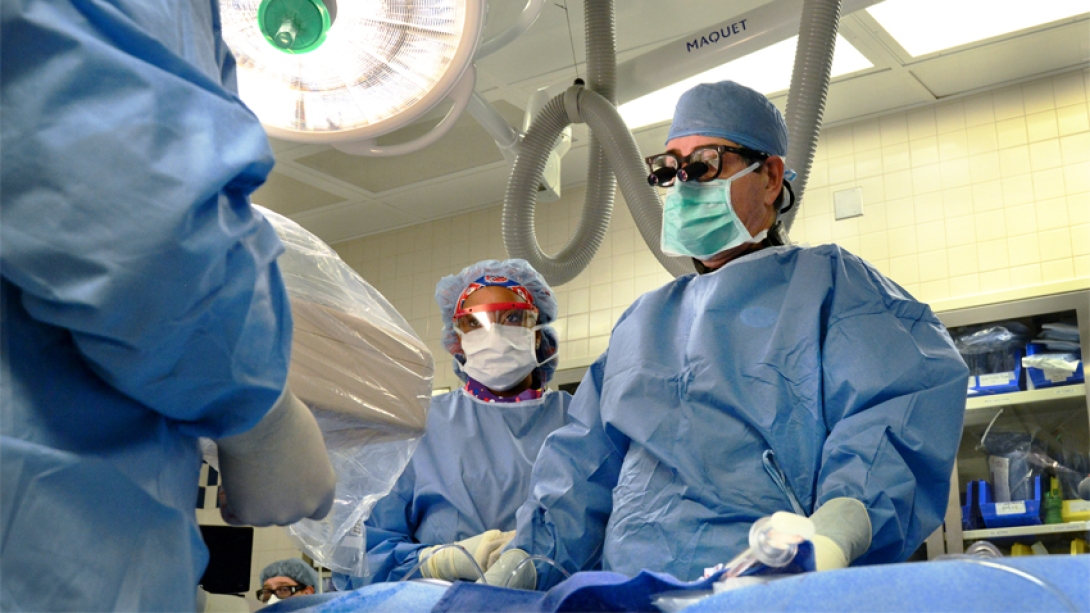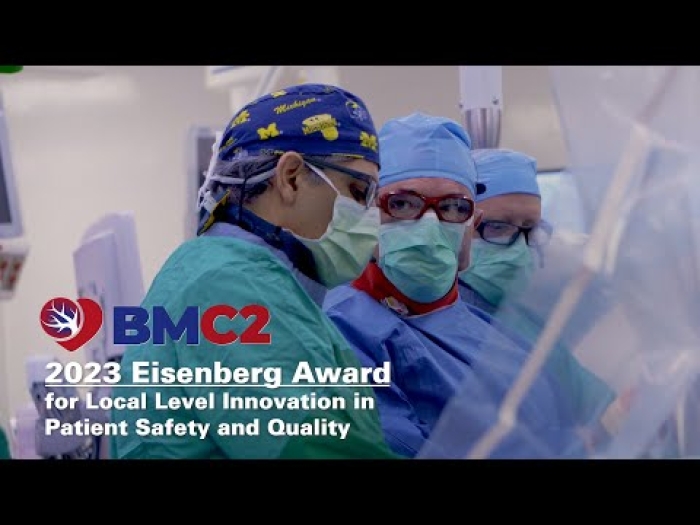A new risk model developed by Michigan hospitals could help patients avoid a common post-surgical complication.
7:00 AM
Author |

Pneumonia is the most prevalent infection after open-heart surgery, leading to longer hospital stays and lower odds of survival.
MORE FROM THE LAB: Subscribe to our weekly newsletter
But a new analysis of data from thousands of patients who had coronary artery bypass graft (CABG) surgery at Michigan hospitals revealed ways people can prepare their bodies to reduce the risk of postoperative pneumonia — a complication that occurred in 3.3 percent of patients in the observational review.
In Annals of Thoracic Surgery, investigators identify a list of 17 patient characteristics — age, race, smoking habits and white blood cell count among them — associated with developing pneumonia after cardiac surgery.
Cardiac surgeons in Michigan and investigators at the University of Michigan Health System developed the list based on the experiences of 16,084 patients. These patients underwent cardiac surgery at 33 hospitals sharing data with the Michigan Society of Thoracic and Cardiovascular Surgeons Quality Collaborative.
The group's findings have significant potential, says senior study author Donald Likosky, Ph.D., an associate professor of cardiac surgery at the University of Michigan Medical School.
"This work reflects an evolution of our understanding of postoperative infections," Likosky says, "and can go a long way to preserve resources and help patients recover from one of the country's most common cardiac procedures."
Co-authors include cardiac surgeons at the Henry Ford Health System, Henry Ford Macomb Hospital and Bronson Methodist Hospital.

Study co-author Henry Ford Health System cardio-thoracic surgeon Gaetano Paone, M.D., right, treats a patient at Henry Ford Hospital in Detroit. Credit: Henry Ford Health System
Proactive measures
A person's health and habits are often good predictors of recovery.
SEE ALSO: Study Shows How Pneumonia-Causing Superbug Invades
The new preoperative risk model, then, is designed to guide clinical decision-making and physician-patient conversations about regimens to pursue before an operation so patients can avoid pneumonia later.
Such preventive strategies "may reduce a patient's risk for postoperative pneumonia," says Raymond Strobel, lead study author and a third-year medical student at the University of Michigan.
That's why it is crucial for doctors to know the study's predictors that could signal trouble.
The key culprits were admission for heart surgery via the emergency room; a history of lung problems; a long hospital stay before surgery; and low ejection fraction, a measurement of how much blood is pumped out by the heart with each beat.
Another well-recognized risk factor for postoperative pneumonia is smoking, although quitting — even just a month before surgery — can help.
Elevated white blood cell count, called leukocytosis, was also a significant predictor.
"Patients presenting with an elevated white blood cell count before their operation may be mounting an immune response against a pathogen or other challenge, and CABG significantly increases their odds of postoperative pneumonia," says study co-author Gaetano Paone, M.D., M.H.S.A., a cardiac surgeon at the Henry Ford Health System.
It may be in a patient's best interest to delay surgery, if possible, to investigate an elevated white cell count, the authors say.
In any case, the study underscores a continued need for vigilance both before and after cardiac surgery.
The data on preoperative risk factors were first presented at the 62nd annual meeting of the Southern Thoracic Surgical Association. The Agency for Healthcare Research and Quality funded the project, and Blue Cross Blue Shield of Michigan supports the state quality collaborative.

Explore a variety of healthcare news & stories by visiting the Health Lab home page for more articles.

Department of Communication at Michigan Medicine
Want top health & research news weekly? Sign up for Health Lab’s newsletters today!





